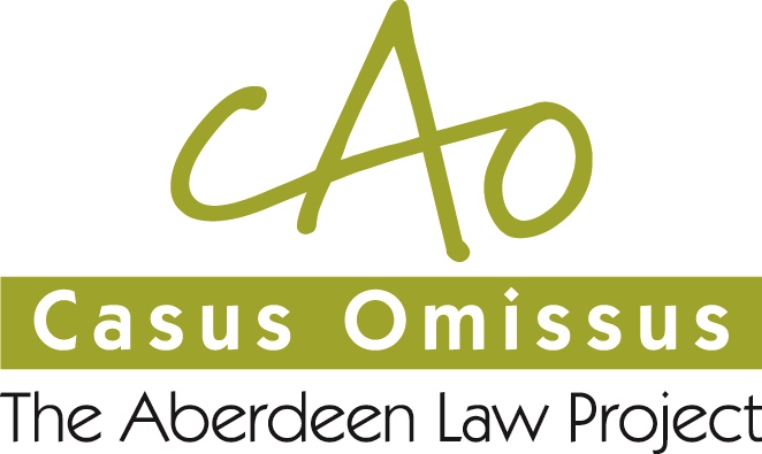In February this year The Aberdeen Law Project sent two students, Ryan Whelan, Founder and Student Director, and Kate Longmuir of the Implementation Committee, to America.
Law clinics, which are a relatively new venture for Scottish Universities, were founded in many American Universities as early as the 1960s. Ryan and Kate chose four Universities to visit: George Washington University, Baltimore University, the University of Maryland and New York University.
America remains the world leader in terms of clinic numbers and clinical education programmes. It was interesting to see the prominence of law clinics in American Universities, particularly at Maryland University, where students must take at least one clinic (usually lasting one semester) in order to qualify for graduation. The idea of creating an opportunity for all students to take part in a clinic and assist the public, should they so wish, is something that The Aberdeen Law Project is committed to, so there were parallels to be drawn, however, a compulsory clinical experience is something we are unlikely to adopt.
One of the most striking differences between pro bono in the UK and pro bono in the US is the impressive infrastructures in place to support American clinics. In the UK clinics tend to operate from a few rooms, perhaps a floor of a building; in America clinics operate from five story buildings which are dedicated to the provision of pro bono. These buildings include numerous student offices, moot courts, client interview rooms, child play areas and specialist libraries. The contrast is stark.
The resources of American clinics were certainly outstanding, however more so were the achievements of the students and staff involved. At Maryland University we watched students practice closing statements, which they would later present in Court, whilst a class at New York University were preparing to watch a Bill they drafted pass into law. It is unrivalled opportunities such as these that make law clinics so valuable to American students; no other course can provide such a wealth of practical experience prior to entering the workplace. This of course is of great significance, especially now that students are entering an increasingly difficult job market. The opportunity to increase employability will drive the demand for law clinics worldwide and provide the incentive for Universities to provide them. This is great news for those in need of assistance.
In Scotland the tide is beginning to turn towards the incorporation of clinical education into mainstream legal teaching. Strathclyde University will this year, for instance, launch the first clinical LLB in Scotland, whilst we at The University of Aberdeen, utilising lessons from our American experience, are currently designing a credit-bearing course for third year LLB students. These innovations should be welcomed and celebrated.
The trip to America was a fantastic opportunity to witness the realities of long-established law clinics, and provided much inspiration for The Aberdeen Law Project as it continues its development.

